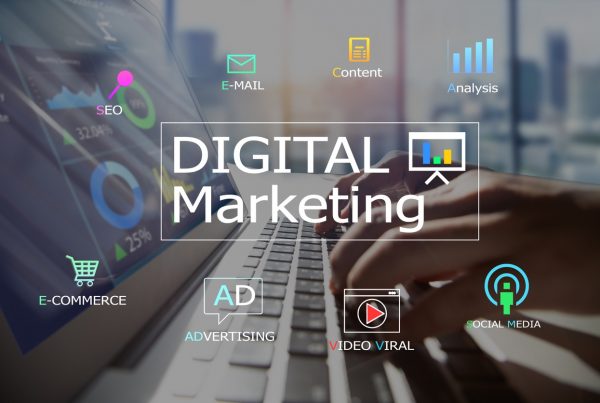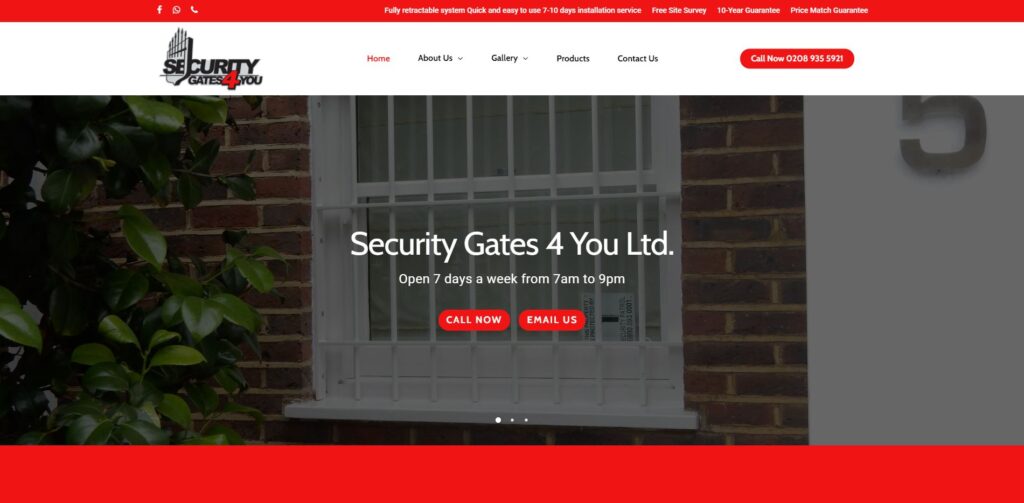What Do SEO Agencies in London Do?
Although many of you might have heard of SEO (search engine optimization), not everyone understands what it implies.
Let’s start by defining this term:
SEO is a type of marketing that aims to increase visibility in organic search engine results. Nothing too difficult.
Success in its earlier history was defined by higher ranks for key search terms, but things have become a little more complex as search engines evolved. The objective is to improve search visibility across audiences and devices, as well as to enrich a user’s journey through websites to increase conversion rates. (moving from prospects to customers).
The word organic signifies an approach without paying for it, one that focuses on methods with enduring value, rather than those that dwindle away once your advertising budget is depleted.
An SEO agency is like a third-party organization that handles these tasks on your behalf.
Working with SEO agencies can assist your company to achieve the following goals:
- Improved visibility
- Increased traffic
- Increased amounts of leads
- Higher conversion rates
- Higher ROI
How Do Local SEO Services in London Do This?
In short, here’s how:
- Make contact with you
- Examine your website
- Outline your goals
- Conduct keyword research
- Examine any charges that may be impacting your website.
- Examine your existing link profile.
- Enhance existing content
- Improve the structure of the website.
- Perform other technical SEO tasks.
- Make fresh content
- Make connections
- Keep an eye on brand mentions.
- Keep track of the outcomes.
- Outreach
- Record results and progress.
Here’s some more information on a few key aspects of what an SEO agency in London will do for you:
1. Communicate With You:
During the onboarding process, an SEO agency should seek to study everything there is to know, about your company. Your objectives, assets and current campaigns; any prior SEO work done internally or externally, the various issues you have been facing and the knowledge gaps you have.
This information influences the campaign they design and conduct for your company. In order to maximize the relevance of communication, results are reported and goals and strategies refined.
Red Flag: If an SEO agency makes no effort to keep you informed, it’s a bad sign.
2. Audit Your Website:
Assessing your site’s current performance and searching for areas of improvement is an important part of the onboarding process. A thorough assessment establishes the groundwork for a long-term SEO campaign.
An SEO agency will need access to your site, your Google Analytics account (or other analytics software), and your Google Webmaster tools account in order to perform this efficiently (if relevant). They may require you to sign up for these Google services (or equivalents) in order to effectively track ongoing activities.
3. Outline Objectives:
A firm will develop an SEO plan with an objective to reach your goals based on the facts and insights gathered in the preceding processes. Depending on the scope and specific aims, this will outline planned activities in any of the areas below.
It is good to have a hard copy of the campaign strategy, so you can refer back to it as the campaign proceeds, ensuring that all planned activities are completed and objectives are met.
Red Flag: If an SEO firm refuses to provide their marketing strategy and objectives, remind them you need to see them before you start working (and paying them).
4. Keyword Research:
Keyword research is an important component of SEO as it can make or break a campaign. Understanding how people look for products and services can help you improve your communication and enhance your chances of being found in the correct searches.
Machine learning allows search engines to have a better understanding of user intent, related terms, and semantics. This means you must be aware of all the different methods potential customers look for items and services linked to your company.
Red Flag: If an SEO service doesn’t ask about keywords during onboarding, double-check that they’re employing themes and terms that are related to your prospects’ purchase intent.
5. Optimise Existing Content:
Rejigger existing content: This includes rewriting page content, blog posts, and other content on the site to make it SEO-friendly. In the past, this meant stuffing as many keywords as possible; today, it means creating content that is user-driven, natural and focused on a query.
Duplicate content, thin content (bulk copy that doesn’t add any value), and broken pages are also removed as part of the optimization process.
Content which is SEO-specific, such as meta titles and descriptions, will be optimized or created, if necessary. Search engines see this as one of the first things they receive about your site, and it is also what users see in search engine results, hence this step is very crucial.
Red Flag: Avoid ‘keyword stuffing’ and ask them what they look for in a well-optimized website if an SEO agency is using out-of-date keyword optimisation tactics.
6. Create New Content:
This comprises both internal and external content for your website (service pages, information pages, blog posts, and so on) (guest posts, articles, thought leadership pieces). Different industry voices value guest posting and other outreach-based content efforts differently, but it all boils down to your objectives and which actions are best suited to attaining them.
Content will be generated in accordance with industry trends and topics, and keyword research will be used to inform this process. Text-based material has traditionally made up the majority of SEO content, however other formats such as video, audio, and infographics may also be used.
Red Flag: Get in touch with the SEO agency if you don’t feel they are writing in your voice or tone.
7. Monitor Results:
SEO is effective and is constantly monitored. As Google updates its algorithms frequently, competitors move up and down the rankings according to marketing campaigns, and your business will create collateral that needs to be optimised and accounted for as part of your overall SEO strategy.
An agency monitors rankings, traffic, engagement, user journeys, and conversions with a variety of tools and techniques. Monitoring accomplishes two goals: first, it confirms whether ongoing work is having the intended effect; and second, it provides insights for increasing future effectiveness.
Red Flag: In SEO, it can’t be a case of fire and forget. If your agency doesn’t keep you updated on their progress, make sure you ask why.
Conclusion
Want to know more about how digital marketing agencies in London like ours can help you? Contact us and we’ll help you Explode into the Digital World!











